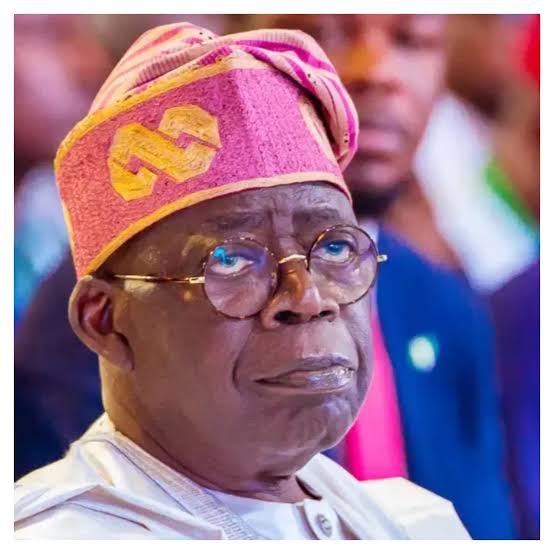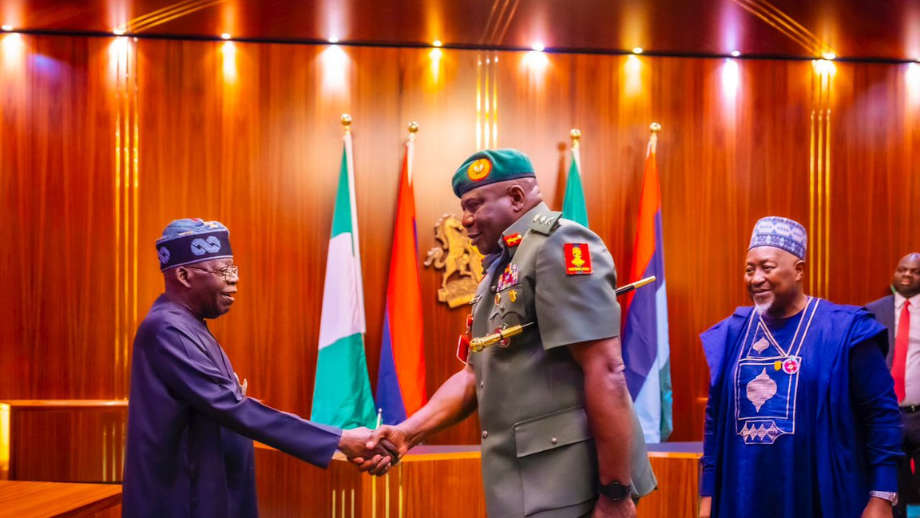Isaac Samuel
President Bola Ahmed Tinubu has called for urgent constitutional reforms to overhaul Nigeria’s national security architecture.
The President stated that the current framework is no longer sufficient to address the country’s complex security challenges.
The President stated this on Monday during a one-day legislative dialogue on constitutional review of national security architecture organised by the House of Representatives Committee on Constitution Review in collaboration with the Office of the National Security Adviser.
Tinubu argued that Nigeria must move policing from the exclusive legislative list to the concurrent list to empower states to assume greater responsibility for local security while maintaining national oversight.
Represented by the Minister of Defence, Mohammed Badaru Abubakar, President Tinubu noted that it is time to align Nigeria’s security framework with present-day realities, warning that neither full centralisation nor outright fragmentation can sufficiently guarantee the nation’s safety.
The President said: “The debate over State Police is no longer theoretical. It is grounded in the daily fears and lived anxieties of Nigerians: farmers afraid to tend their fields, traders unsure of safe passage, and communities abandoned to self-help.
“This dialogue must courageously interrogate the constitutional shifts required to move policing from the Exclusive List to the Concurrent List, enabling States with capacity to assume greater responsibility for their own security, while preserving national cohesion.
“We must learn from global best practices, adapting decentralised policing models that enhance local accountability without sacrificing national oversight.”
Tinubu said various threats from terrorism in the Northeast and banditry in the Northwest, farmer-herder clashes in the Middle Belt and separatist agitations in the Southeast are issues that transcend the capacity of any single agency.
According to him, the government’s integrated security strategy characterized by intelligence fusion, joint task force operations, and synchronized offensives has yielded significant results, including the dismantling of separatist cells in the Southeast and the disruption of criminal networks in the Northwest.
The President noted that growing agitation for state police, rising cybersecurity threats, and continued insecurity across different regions have exposed the limitations of centralised policing and outdated constitutional provisions.
“None of these reforms will materialise without the courage of our legislators and the conviction of our political leadership. The House of Representatives, through its Constitution Review Committee under the capable leadership of Rt. Hon. Benjamin Kalu is offering the nation a rare window of opportunity to correct structural defects that have long undermined national security.
“The Executive Branch stands ready to work with the Legislature, the Security Services, and all stakeholders to give these reforms constitutional force and legitimacy”, the President said.
On his part, Speaker of the House of Representatives, Abbas Tajudeen said the dialogue was timely, given the urgent need to review and update existing laws to address current and emerging security threats.
He said Nigeria’s complex security landscape demands strategies that are multi-dimensional, inclusive, technology-driven, and adaptable anchored in a solid legal and institutional framework.
According to him, with the prevalence of terrorism, banditry, piracy, militancy, and oil theft across regions, the House is committed to taking practical legislative steps beyond motions and bills to support the government’s anti-insecurity efforts.
Chief of Defence Staff, Gen. Christopher Musa, also called for urgent legal and constitutional reforms to address emerging threats like cyber warfare, hybrid threats, and insurgency.
He described the current legal framework as increasingly inadequate and highlighted operational ambiguities such as unclear command authority and detention procedures that hamper effectiveness during internal operations.
He proposed key reforms including: amending the Armed Forces Act and relevant constitutional provisions; establishing field and standing court martials in all military commands;
Constitutionally recognising court-martial as superior courts of record;
He also advocated for legal provisions to enable court-martials to try individuals captured in acts of terrorism or insurrection under martial law conditions.
In his remarks, Deputy Speaker and Chairman of the Constitution Review Committee,.Benjamin Kalu, described the dialogue as a necessary diagnostic process.
He said previous legislation on security was often developed without adequate input from those directly involved in frontline operations
National Security Adviser, Nuhu Ribadu, said security and constitutional order are deeply intertwined.
Ribadu, represented by the National Coordinator, National Centre for Anti-Counter Terrorism, Maj.Gen Adamu Laka, maintained that a responsive, inclusive, and forward-looking constitution is essential for fostering national unity and addressing the root causes of insecurity
“The Constitution must evolve to reflect the hopes and challenges of Nigerians. Addressing grievances, protecting rights, and fostering trust between citizens and the state are all constitutional imperatives,” Ribadu said.
He commended the National Assembly for initiating the dialogue and called for constitutional reforms that decentralize service delivery, strengthen institutions, and promote more effective governance.





